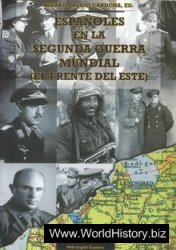Traci Ardren is Associate Professor of Anthropology at the University of Miami. She was codirector of the Pakbeh Regional Economy Project at Chunchucmil, Yucatan, from 1998 to 2002, and currently codirects the Xuenkal Archaeological Project. Her research interests include issues of social identity and other forms of symbolic representation in the archaeological record of New World prehistoric cultures and related aspects of contemporary heritage management.
James A. Brown, Professor Emeritus of Anthropology, Northwestern University, seeks to find in the archaeological record of the Eastern Woodlands of North America the social processes that contribute to a cross-cultural reading of cultural evolution. This focus has led to a reexamination of interpretations of the Mississippian period sites of Cahokia (Illinois) and Spiro (Oklahoma), and the Hopewellian site of Mound City (Ohio). An important part of his recent research is the incorporation of a perspective that draws on religious ritual, as represented by his reinterpretation of the main mound at Spiro. His concern with ritual extends to mortuary practices, which have received extended treatment in his rethinking of the Spiro and Mound City burial programs.
D. Matthew Buell recently completed his PhD in the Department of Classics at the University at Buffalo, State University of New York. He specializes in the archaeology of the Bronze Age Aegean and Near East, with a particular focus on state formation, urban planning, landscape, and settlement patterns. He has participated in a number of archaeological projects in North America, Cyprus, and Greece, and he currently serves as the field director for the Gournia Excavation Project in Gournia, Crete, Greece.
Andrew T. Creekmore III is Assistant Professor of Anthropology at the University of Northern Colorado. His research interests include spatial organization of human settlements ranging from mobile forager campsites in the High Plains of the United States to Bronze Age cities of Mesopotamia. His current research involves the application of multiple archaeological geophysics methods to these kinds of sites in order to investigate their structure and life history.
Bruce Dahlin retired from Howard University as Associate Professor of Anthropology. He initiated and codirected the Pakbeh Regional Economy Project at Chunchucmil, Yucatan, from 1993 to 2006. His research interests included ancient marketplaces, economic systems, settlement patterns, political organization, ancient agricultural systems, and paleoclimatic reconstruction.
Kevin D. Fisher is Assistant Professor of eastern Mediterranean Archaeology in the Department of Classical, Near Eastern, and Religious Studies at The University of British Columbia. His research focuses on the social dynamics of built environments, urbanism, the origins and development of complex societies in the eastern Mediterranean and Near East, and the application of geospatial and digital technologies in archaeological research. He has worked on archaeological projects in Cyprus, Greece, Jordan, Peru, Guatemala, the United States, and Canada and is currently codirector of the Kalavasos and Maroni Built Environments Project, Cyprus.
Rodney D. Fitzsimons is Associate Professor in the Department of Ancient History & Classics at Trent University. He specializes in the archaeology of the Bronze Age Aegean and Early Iron Age Greece, with a particular focus on early state formation, sociopolitical identity, monumental architecture, and funerary practices. He has participated in a number of archaeological projects in Greece and Albania, and he currently serves as the site architect for the Azoria Project, Azoria, Crete, Greece, and the codirector of the Ayia Irini Northern Sector Archaeological Project, Ayia Irini, Kea, Greece.
Jeffrey Fleisher is Assistant Professor of Anthropology at Rice University, Houston, Texas. His research on the ancient Swahili has focused on the role of rural and nonelite people in the context of urban development and the use of material culture in the construction of power and authority. His current research at Songo Mnara focuses on the social uses of open space.
Scott R. Hutson is Associate Professor of Anthropology at the University of Kentucky. He was codirector of the Pakbeh Regional Economy Project at Chunchucmil, Yucatan, from 2004 to 2006. He currently directs the Uci-Cansahcab Regional Integration Project in Yucatan, Mexico, and is interested in a broad range of topics including, but not limited to, settlement patterns, household archaeology, and political organization.
CONTRIBUTORS
John E. Kelly is a Senior Lecturer in Archaeology in the Department of Anthropology at Washington University. He has served as codirector, with James A. Brown, of the Mound 34 Project at Cahokia since 1998, and as the coordinator of the Cahokia Mounds Museum Society's Central Palisade Project. In 2011, together with University of Bologna colleagues Maurizio Tosi, Davide Domenici, and Maurizio Cattani, he initiated the Cahokia Epicenter project that is currently focused on the architecture of the West Plaza. His interests also include the role and contextualization of ritual in Cahokian society, as well as efforts of preservation in the greater St. Louis region, including the ancient town of East St. Louis, which he rediscovered more than twenty years ago.
Aline Magnoni is Adjunct Assistant Professor of Anthropology at Tulane University. She was assistant director of the Pakbeh Regional Economy Project at Chunchucmil, Yucatan, from 1998 to 2006. She currently codirects the Proyecto de Interaccion Politica en el Centro de Yucatan, which investigates diachronic regional patterns of political consolidation and dissolution in central Yucatan. Her research interests include landscape and household archaeology, political organization, urbanism and complex societies, public archaeology, and collaboration and engagement with communities.
Yoko Nishimura is a Postdoctoral Researcher in the Department of Anthropology at the University of Pennsylvania. Her research centers on the household archaeology and urban layout of third-millennium BC city-states in northern Mesopotamia. She is particularly interested in the ways ordinary city inhabitants organized their domestic space and activities within the context of a much larger, urban spatial configuration. By examining ancient burials made beneath house floors, she is also investigating the complex relationship between the quotidian activities and intramural mortuary practices of ordinary city inhabitants in the past.
Anna Razeto is a Postdoctoral Fellow in the Department of Crosscultural and Regional Studies of the University of Copenhagen.
Her main field of research is comparative archaeology, particularly focused on aspects of urbanism in the Roman and Han empires. She is currently working on a volume on the comparison between the Han and Roman capitals. Her current project looks at modern interpretation techniques for the public of urban archaeological sites in a cross-cultural perspective.
Barbara L. Stark is Professor Emerita of Anthropology at Arizona State University. She is an archaeologist specializing in Mesoamerican civilizations, especially the Gulf lowlands. Her recent publications include (with coauthors) Ethnic Identity in Nahua Mesoamerica: The View from Archaeology, Art History, Ethnohistory, and Contemporary Ethnography (2008) and, coedited with C. P. Garraty, Archaeological Approaches to Market Exchange in Ancient Societies (2010).
Stephanie Wynne-Jones is Lecturer in Archaeology, Department of Archaeology, University of York, specializing in the archaeology of the Eastern African Swahili coast and its links with the wider Indian Ocean world, AD 600-1500. Her interests include urbanism, social space, and identity; in particular she has developed projects revolving around the ways that objects move and act within global and local networks. Wynne-Jones has directed projects at Vumba Kuu in Kenya and at Uvinza, Ujrji, Mafia Island, Kilwa, and Songo Mnara in Tanzania. Her current fieldwork is at the fourteenth-to fifteenth-century stonetown of Songo Mnara. In addition, she is working on a project exploring the movement of objects in the Indian Ocean in the early Islamic period of the seventh to tenth centuries AD.
Norman Yoffee is Senior Fellow in the Institute for the Study of the Ancient World, New York University, and professor emeritus in the Department of Near Eastern Studies and the Department of Anthropology at the University of Michigan. His most recent books are Myths of the Archaic State: Evolution of Cities, States, and Civilizations and Questioning Collapse: Human Resilience, Ecological Vulnerability, and the Aftermath of Empire, the latter co-edited with Patricia McAnany.




 World History
World History









